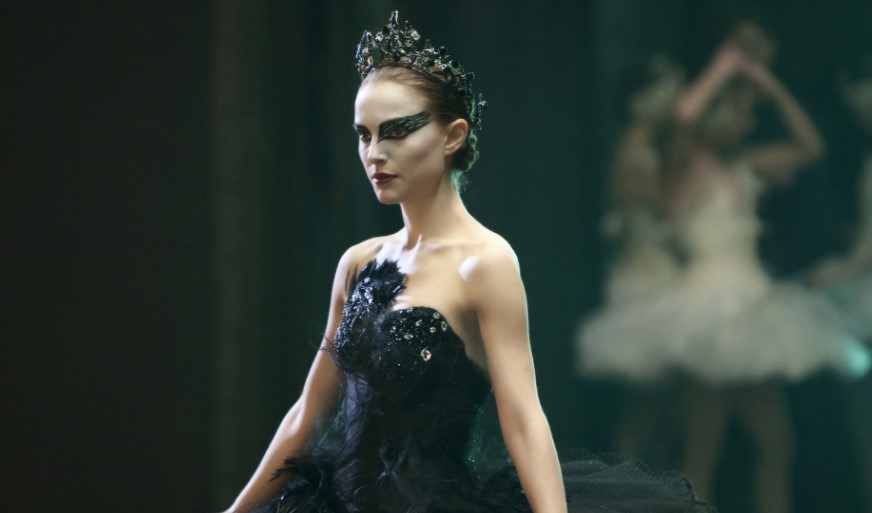Once upon a time, yours truly had an insatiable crush on one Natalie Portman. I found the tempered violence crafted by Luc Besson in The Professional (1994) to be utterly ridiculous without the extremely sincere performances of Jean Reno, Gary Oldman and this 13 year old little girl who had an on-camera presence well beyond her years. She followed up that performance with an extremely minor role in one of my favorite crime dramas of all time, Heat (1995). As the daughter of a divorced mother dating detective Al Pacino, Portman’s role was to ensure the audience did not see him as completely obsessed with police work and genuinely, a good guy. What solidified my attraction to her was her performance in Beautiful Girls (1996), which was really more about men and their perspectives concerning the fairer sex where she played a young girl that played on the heart strings of our hero Timothy Hutton. Natalie’s performance mandates every male of adult dating age to be absolutely certain as to the legalities of any young ladies they are currently seeing because she proves that women of any age can get almost any man wrapped around their little finger. And then the Star Wars prequels came and the romance was over. -(Revered silence)- I was truly, deeply, emphatically, unequivocally, crushed! No, she did not develop some sort of facial rash as she was still beautiful, but her performances were not. Long story short, Natalie made it on my black list and it was only until her performance in V for Vendetta (2006) that I began to respect her as an actress again. The effort put forth by Natalie Portman in Black Swan makes any doubters swallow all criticism and pride with minimal dry heave.
Black Swan is the type of psychological thriller that tries to catch you off guard by setting it in the seemingly posh and innocent world of professional ballet. Anyone who has ever been in a high school production of anything (musical, theater, or dance) can tell you this is anything but, as performers are quick with their hugs and smiles and kisses for lead performers, while some secretly begrudge them a world of failure and a brick through their window. The world of professional performance, in this case dance, is extremely cut throat and requires the utmost discipline and adaptability to become a success, to become a lead. Thus, the audience follows Portman’s Nina Sayers as one extreme an individual can pursue to rise to the top: being extremely reserved and humble so as to produce the maximum amount of time devoted strictly to practicing the craft with little (if any) activities outside of this world as a distraction. Nina’s counterpart Lily, played by Mila Kunis, represents the opposite extreme or as I’d like to refer to it as, “The Lindsay Lohan rule of absolute recklessness, free living, cavalier loving and relying on nothing but raw talent to get you through every day.”
This is the kind of story that many people can relate to even if they know nothing of the world of professional dance. It is ultimately a story that places opposing life credos on a collision course for an individual who desperately wants to succeed and is willing to depart all disciplines, to explore all personas if it means being on top. The story was surprisingly well crafted seeing how credited writers: Mark Heyman, Andrés Heinz and John C. McLaughlin wouldn’t be recognized at a writer’s guild dinner even if they were introduced with a full blown parade. I presume a fairly intricate knowledge of the inner workings of ballet companies by one if not all of the writers to lay out a very believable back drop to this segregated corner of society. Of course, this is a Darren Aronofsky film and I highly suspect his influence beyond the director’s chair in some indirect composition of this screenplay. The story would be incomplete without the prerequisite unhinging of reality by some, if not all of the characters in the story and this adds an additional layer of danger to the sexual intrigue that is pervasive in every scene. Aronofsky’s influence combined with cinematographer Matthew Libatique’s choice shot selection showcasing Portman’s ballet skills while masking any deficiencies as an obvious novice leads to an extremely polished motion picture and a story that begs you to allow its tendrils into your mind and give it a good shake!
Contrary to what the trailers may lead the viewer to believe, this is not a special/digital effects heavy film. However, when there is a moment where the world as perceived by Nina begins to play tricks on the audience you will notice some brief, but brilliant effects intended to shock and disgust. These moments begin to increase in frequency as the film progresses and they culminate in an incredibly epic transformation during the film’s climax. In my opinion, it is one of those moments that get selected for a filmmaker’s In Memoriam juxtaposed sequence for the Academy Awards. It is that satisfying! Unfortunately, the effects are so well done and subliminal that they tend to steal every scene from some very impressive choreography and dancing performances. Sorry guys, you will have to sit through some dance because the material demands it, but what makes it more acceptable to the average American football watching male is the fact that most of it is dressed down and sweaty and not made up and in pink tutus. Dancers are athletes and none personify the effort required to get your body into this kind of shape more than Portman herself who may have lost 20 pounds to get into “dancer’s shape,” but got incredibly tone in the process. It’s the kind of body transformation that puts Linda Hamilton’s T2 body to shame. This film needed the choreography to be as professional as the manner in which it was captured on film, therefore the combined efforts of Benjamin Millepied with the special effects team of Look FX spearheaded by Steve Dellerson must be distinguished as being vital to elevating material that could be construed as art house to the mainstream; not an easy task to accomplish.
As for the acting performances in Black Swan, all I can say is that it is yet another well oiled cog in this mechanized juggernaut. The core relationship at work in this film is the always reliable love triangle among Natalie Portman (Nina), Vincent Cassel (Thomas) and Mila Kunis (Lily). Cassel plays the ballet’s director with a commanding arrogance and control not unlike the thief he plays in Ocean’s 12 and 13. His character comes off as a bit of a loose cannon, but Cassel demonstrates an ability to pull back on the intensity of his performance to reveal Thomas as being more of a Jean-Luc Picard rather than James T. Kirk. In doing so, Cassel totally sells his character as the very essence of “method to the madness.” Mila Kunis plays Lily, a new dancer added to the company who represents a character meant to be the polar opposite of Natalie Portman’s Nina. Mila continues to draw on her inner seductress to produce these types of mysteriously charismatic women for the Hollywood films she has been appearing in recently. What’s interesting about Lily as a character is that she fulfills traditional roles as antagonist and companion/love interest simultaneously. Unfortunately, the nature of this type of film prevents Mila from exploring her character beyond playful and sexy which she could masterfully accomplish in her sleep. She does not have many scenes where she is called upon to do actual dancing, but she produces an acceptable image as one when she is.
There are a number of reasons why Natalie Portman is getting serious Oscar buzz for her performance in Black Swan. First, she had to get into some serious ballet shape which doesn’t just mean skinny, but it also means strength. Then she had to train to engage in actual ballet. There are enough full body shots from head to toe to prove the very real work she had to go through prior to any actual filming. Second, she is required to produce a character that does more than show some kind of arcing or gradual growth by the film’s end. Her role requires a complete demeanor shift from innocence, naiveté, reservation and safety and her immense struggle to do so is rivaled by her own strong desire. Yes, this is a very complex character indeed. Third, the entire film hinges on the quality of her character and her performance. This story is being told strictly through her character’s perspective, or rather, distorted perspective and without an actor or actress being capable of hitting home runs in every scene, this type of movie loses all edge and intrigue. Many women who have won for best actress in past performances have not been required to have all these types of responsibilities in their roles. All Halle Berry had to do was get naked and demonstrate sadness and excitement while doing it. If we presume that to be a litmus test for the Academy, then Natalie Portman doesn’t only win best actress, but the Nobel Prize and the Pulitzer in addition. Of course I jest, but I’m also trying to illustrate that no woman put in as singular an effort into a film as she did in Black Swan. It was a truly remarkable performance and she deserves Oscar gold.
Black Swan was the second best film of 2010 behind Inception. It wasn’t the smallest Indy production budgeted at around $13 million dollars, but it gives plenty of bang for your buck. Had this film been released in as many screens as larger budgeted films, Black Swan would have seen a much more profitable return. This is a movie about the dark side of dance and the twisted nature of obsessive behavior that was definitely made for men as well as women because it is simply far too sexy and creepy to be ignored. This is an excellent date movie, especially if one needed a little extra incentive to seal the deal at the end of the night. This film is no ugly duckling.







